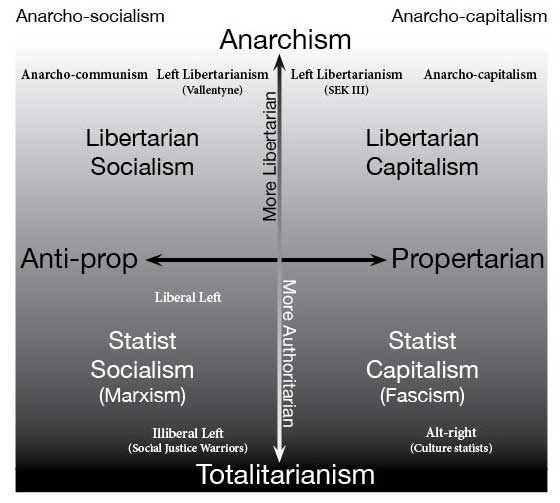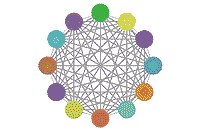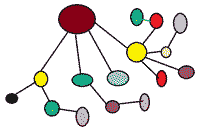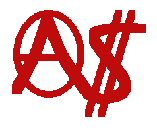Principles of Anarchist Federation
This is a remix of
Principles of a Pluralist Commonwealth by Gar Alperovitz (2017)
altered to reflect an anarcho-capitalist and federalist perspective by Hogeye Bill.
Introduction

The premise of this book is that we have entered what is best understood as an unusual form of systemic crisis, not simply a political crisis. Which is to say the larger system of America’s mixed economy - statist (corporatist) capitalism mixed with statist socialism - is in trouble, not simply its political system. Long trends of growing government power, inequality of rights, the selling of privilege, of institutionalized poverty, of subsidized racism, and of ecological destruction - trends that do not bend in more than token ways to electoral politics or the politics of reform or identity politics - these define wicked problems that have their origins much deeper in the politico-economic design of the system itself.
It is instructive also to remember that virtually all of the corporatist programs of the New Deal began with the "war socialism" (actually war fascism) of World War I. Many of the programs and ideas that became the basis of the next stage of government ratcheting up of violence-power* were originated and proved failures in state and local "laboratories of democracy." What defines the current crisis as different from those of the past, and unusual, is that the system neither succeeds in meeting the needs and aspirations of countless Americans, nor collapses, as theorized by some analysts. Radical change might have to be initiated by a black swan event, such as hyperinflation.
The current mixed economy with corporatism as the dominant trend breeds pain, decay, and disillusionment - but also, potentially, the basis of a different longer term solution based on the resulting loss of legitimacy of the State. We have good reason to hope for the elimination of compulsory government, with voluntary associations and free markets prevailing.
To say as much is to define two critical but distinct challenges. The first is straightforward, though bracing: If the design of statist capitalism is unable to sustain values of individual liberty, prosperity, and ecological sustainability through well-defined property rights, as a matter of inherent systemic architecture, what systemic ‘design’ might ultimately achieve and sustain these values? Our answer is anarcho-capitalism - freed markets with no compulsory State at all.
The second challenge is equally demanding: How specifically might it be possible to move forward, especially in difficult political times, to lay the foundation for a transformation in the direction of a serious new systemic answer? Our answer is anarchist federation.
We will have a good deal more to say about both challenges in the entries that follow, but the importance of a new institutional basis for progressive politics - libertarian capitalism - is critical. Calls for a "new populism" are commonly heard among both progressives and the alt-right. But the small farm institutional substructure of populism has long since disappeared. Farmers represent no more than two percent of the population. And labor unions as the institutional substructure of liberalism (and of progressive politics in general) have declined from a peak of 34.7 percent of the labor force shortly after World War II3 to a mere 10.7 percent at this writing and falling.
In a statist system, institutional connections, colloquially referred to as "suck." becomes critical in importance. Individuals and groups without suck swim in a lonely political sea, ready to be preyed upon by demagogues like Bush, Obama, and Trump. In an anarchist federation, the decision-making is local - from the bottom up. If the "higher level" units do not satisfy the local, the local may nullify the higher level association's policy, or opt out of the federation entirely. This goes a long way toward solving the "paradox of government" problem of who watches the watchers?
A broad range of new technologies and institutions are developing. Crypto currencies are allowing people to evade government plunder ("taxation".) Firms can be domiciled in cyberspace. Producers can be pseudonymous, that is, maintain a reputation but be untouchable by government agents. Among the institutional forms are cooperatives, neighborhood corporations, land trusts, locally owned energy networks and broadband systems, hybrid forms of community and worker ownership, and many more. I shall suggest that these are important elements of a better system which supercedes statist capitalism and statist socialism. We are laying foundations both institutionally and in the realm of theory and vision for the coming free market libertarian capitalist society - a community-sustaining life-affirming system transcending the statist quo.
* See Crisis and Leviathan by Robert Higgs.
 Intro |
 America |
 Federation |
 Decentralization |
 Liberty |
 Culture |
 Money |
 Markets |
 Hogeye Bill's Anarchism Page |